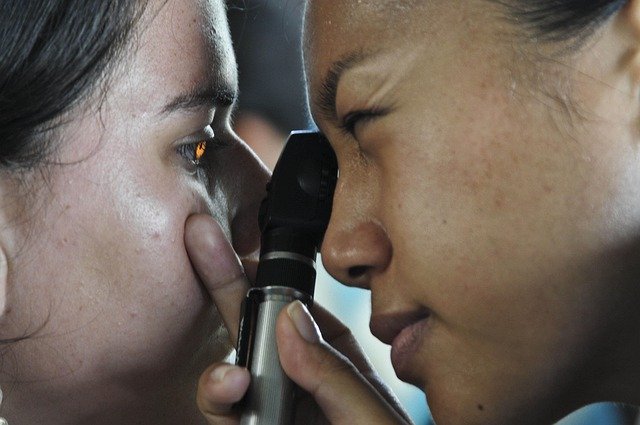Rectal cancer: Causes, symptoms, diagnosis, and treatment
Rectal cancer develops when malignant cells form in the lining of the rectum, the last several inches of the large intestine before the anus. It is closely related to colon cancer because both arise from the colorectal tract, and they are often discussed together as colorectal cancer. Early detection improves treatment choices and outcomes, so awareness of symptoms and risk factors is important for people and clinicians.

This article is for informational purposes only and should not be considered medical advice. Please consult a qualified healthcare professional for personalized guidance and treatment.
What is rectal cancer and how it affects the colon
Rectal cancer arises from abnormal growth of cells in the rectal mucosa. Most start as benign polyps that can become cancerous over time, though not all polyps progress. Because the rectum is part of the colon and rectum system, tumors in the rectum can affect bowel habits, cause bleeding, and, when larger, obstruct the passage of stool. Treatment and prognosis depend on tumor size, invasion into nearby tissues, and whether it has spread to lymph nodes or distant organs.
The relationship with the colon matters for screening: colonoscopy evaluates the entire colon and rectum and allows removal of polyps before they progress. Genetics, chronic inflammatory bowel disease, age, family history, diet, and lifestyle factors can all influence risk. Understanding these risk elements helps clinicians tailor surveillance and management strategies that consider both colon and rectal health.
Can rectal cancer cause weight loss?
Unintentional weight loss is a common symptom that can accompany rectal cancer, especially in more advanced disease. Tumors may alter metabolism, reduce appetite, or cause difficulty eating because of pain, nausea, or anxiety. In addition, chronic blood loss can lead to anemia, which lowers energy and appetite and contributes indirectly to weight loss. Because weight loss is nonspecific, it should prompt medical evaluation when paired with other symptoms such as rectal bleeding or changes in bowel habits.
Addressing weight loss in people with rectal cancer typically involves nutritional assessment, dietary modifications, and collaboration with dietitians or oncology nutrition services. Where appropriate, interventions can include calorie-dense meals, oral nutritional supplements, and treatment of underlying causes such as nausea, pain, or anemia to help stabilize weight and improve strength during therapy.
Why does fatigue occur with rectal cancer?
Fatigue associated with rectal cancer may result from several interacting factors. Cancer itself can cause systemic inflammation and metabolic changes that increase tiredness. Anemia from chronic bleeding reduces oxygen delivery to tissues and is a frequent contributor to fatigue. Treatments such as radiation and chemotherapy also produce fatigue by affecting rapidly dividing cells, disrupting sleep, and altering mood and appetite.
Management of fatigue should be individualized and may include treating reversible causes like anemia or thyroid dysfunction, optimizing pain control, recommending light physical activity to maintain conditioning, and coordinating rest periods. Supportive care, counseling, and referral to rehabilitation or palliative services can help people manage persistent fatigue and maintain daily functioning during and after treatment.
How is rectal cancer diagnosed and staged?
Diagnosis typically begins with history and physical exam, including a digital rectal exam. Flexible sigmoidoscopy or colonoscopy allows direct visualization and biopsy of suspicious lesions; biopsy is required for definitive diagnosis. Once cancer is confirmed, staging uses imaging such as pelvic MRI to evaluate local tumor extent, CT scans to look for distant spread, and sometimes endorectal ultrasound for detailed local assessment. Blood tests may include complete blood count and tumor markers like CEA for monitoring.
Staging follows established systems that describe tumor size and spread to lymph nodes or distant organs. Accurate staging guides treatment planning — for example, early-stage tumors confined to the rectal wall may be managed surgically alone, whereas tumors that have penetrated deeper or involved nodes often require combined approaches including radiation or chemotherapy before or after surgery.
Treatment options for rectal cancer
Surgery is the cornerstone for many rectal cancers and ranges from local excision for very early tumors to more extensive resections such as low anterior resection or abdominoperineal resection for lower rectal tumors. Preoperative (neoadjuvant) radiation, often combined with chemotherapy, is commonly used for mid-to-low rectal cancers to shrink tumors, improve resectability, and reduce recurrence risk. Adjuvant chemotherapy after surgery may be recommended if there is node involvement.
Beyond traditional surgery, radiation, and chemotherapy, multidisciplinary care may include targeted therapies or immunotherapy for specific molecular subtypes and metastatic disease. Supportive services such as stoma care education, physical therapy, psychosocial support, and nutritional counseling are integral parts of care that help patients manage side effects and preserve quality of life throughout treatment and recovery.
Conclusion
Rectal cancer is a disease of the lower large intestine closely linked to colon health, with symptoms that can include weight loss, fatigue, and changes in bowel habits. Early detection through appropriate screening and prompt evaluation of symptoms improves treatment options and outcomes. Diagnosis relies on endoscopic biopsy and imaging for staging, and treatment often combines surgery, radiation, and chemotherapy tailored to disease stage and patient factors.





